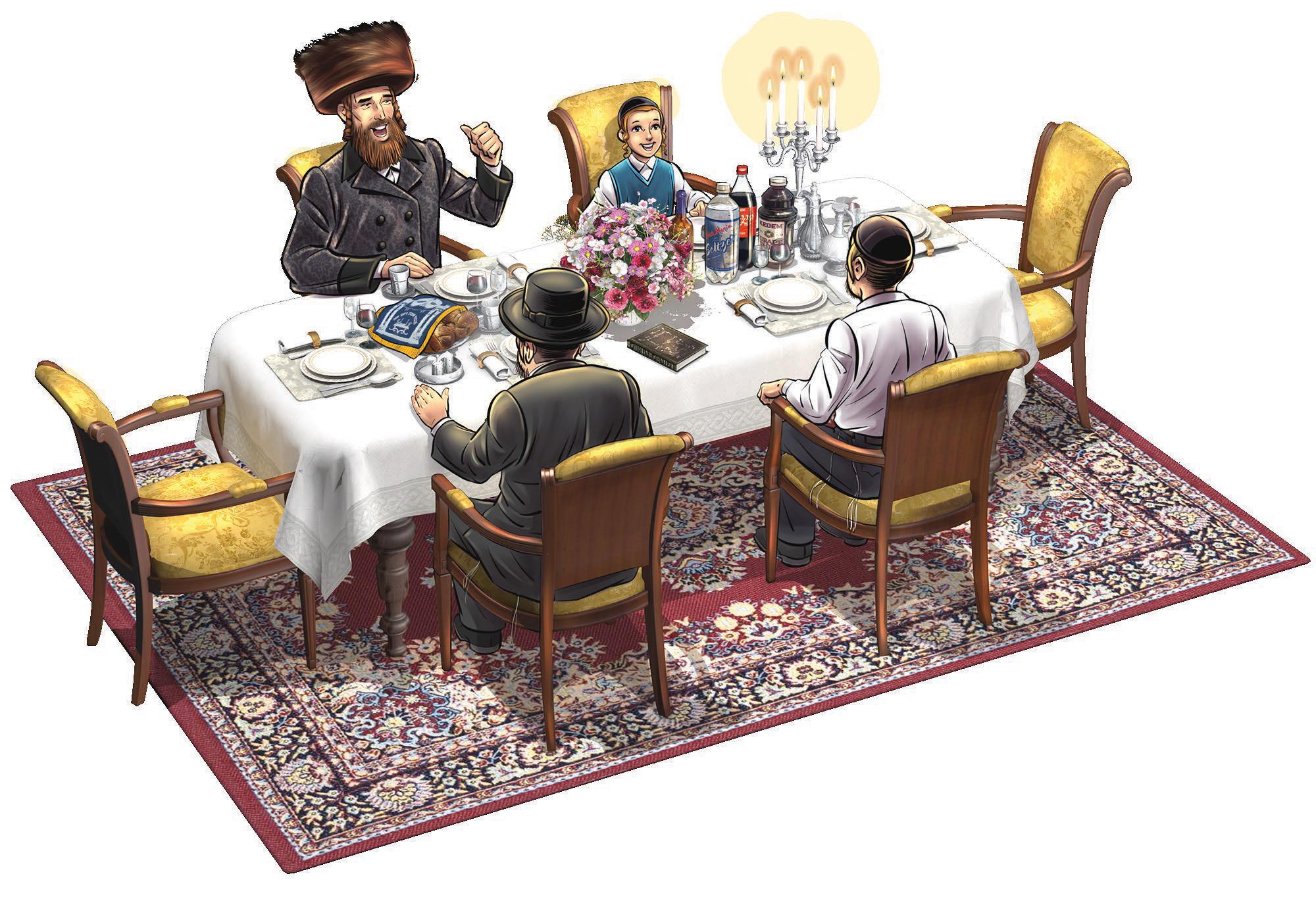INNER PARENTING
1. An Analogy Right There
2. See How He Loves Us!
At school, the teachers are well aware that kids learn best when we activate their vibrant imagination. With vivid meshalim, they bring profound concepts to life for even the littlest ones. At home, we’re surrounded by such reminders all the time. If we open our eyes to notice the analogies in life, we’ll find them all over in the messages Hashem keeps sending our way. Pointing them out to the kids goes a long way in crystalizing profound concepts for them.
Any time we feel a rush of gratitude toward any positive aspect of our life, from the very trivial like a good-tasting food to the weather to the joy of Shabbos and Yom Tov and everything in between, we can make a point of sharing our observation with the kids. “Wow, look how Hashem takes care of us—He made the line move so fast.” “See how Hashem loves us? He gave us such gorgeous weather today.” “Thank You, Hashem, that the doctor said it’s only a small infection.” “Wow, what a delicious apple. He created this especially for you!” It’s through statements like these that we turn the home into more of a mikdash me’at, ushering more of His spirit into our home and their hearts.
For example, when we tell the kids they can’t have a certain food right now because it’s not healthy for them, we can finish off with this, “And that’s a mashal for when Hashem doesn’t want to give us something that isn’t good for us.” Older kids connect really well to these examples, which, our sefarim explain, is actually the reason Hashem created the concept of parents in this world: so we can emulate His ways of parenting and help children understand the concept of a Father who loves them most of all. As my eightyear-old daughter told me one night when I was tucking her in, “When you hug me like this, I feel so connected. It makes me feel not scared, no matter what happens.” What a conversation starter that can be.
The other day, my kids and I were coming upstairs from the park, getting into the elevator with the stroller and play paraphernalia. As I was about to enter, the doors almost closed—with me still in the lobby, and two little kids inside. It was the handle of a doll carriage that stood in the way, saving the little ones from the fear of riding the elevator alone.
For younger kids, when we pass a construction site, “Wow, that’s such a good mashal! This is what happens when we do mitzvos, we build our Olam Haba.”
“That’s such a mashal!” I said to my eight-year-old daughter standing right near me. And she said, “So true! So true! We don’t even realize how Hashem watches over us. They don’t even know what could have happened to them now.” In the same way, I explained, Hashem orchestrates ways to spare us pain and disappointment time and again. He sends this person just at the right time, that solution, this opportunity—just when we need them.
Depending on the child’s age, finding analogies in this physical world and connecting them to the Real World helps cultivate a deeper ruchniyus foundation in our children.
This seemingly trivial incident served as a reminder of Hashem’s supervision in our lives, and because it happened before their eyes, it was one the kids were able to grasp and internalize.
3. Channel It Upward With their hopeful spirit and untainted purity, tefillah is another concept children can relate to quite easily. Every time an opportunity arises where Divine intervention is needed (which is always!) we can utilize the moment as a chance to channel our hopes and wishes Upward. First, there are the prayers for His help. “Let’s daven that this cake should come out nice and fluffy.” “Let’s ask Hashem to help us find your shoe/ that this kid should know his test/ that her headache should heal…” Then, there are the opportunities to daven for others. When a child sees someone who’s handicapped or appears to be in a tzarah, that’s a chance to channel it Upward. “Oy, we can daven to Hashem to help Him—and thank Him that all of us are healthy.” Often, when a child turns to us with an issue that we have no control over (which is all issues!) we have an incredible opportunity right there to acknowledge our own powerlessness and teach the child how much more helpful and comforting it would be for him to channel his hopes and dreams Upward. “I’ll do my best to help you with this, but together we can daven to Hashem for His help. He’s the One who does everything anyway.” Even better is when we summon the rest of the family and ask them to join in with the tefillah as well. And then, there’s asking the kids to daven for us. That speaks volumes of our belief in them, in their purity, in the koach of their tefillos as tinokos shel beis raban. The other day, my ten-year-old daughter said to me, “I need to chap arein this time to daven for [something she wants very much] because soon I won’t be under bas mitzvah anymore—I won’t be from the tinokos shel beis raban anymore…” And that davening we speak of is all of one line—powerful in its own right. “Hashem, please send this person a refuah sheleimah.” “Hashem, please help Yossi do well on his bechinah today.” It’s these short, powerful moments of connection that facilitate so much bonding.
70
WELLSPRING / MAY 2023





























